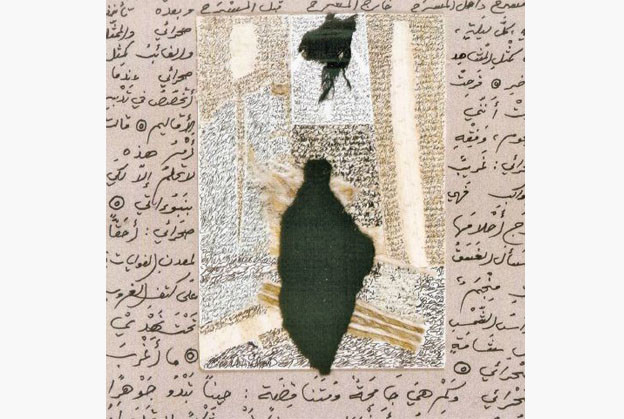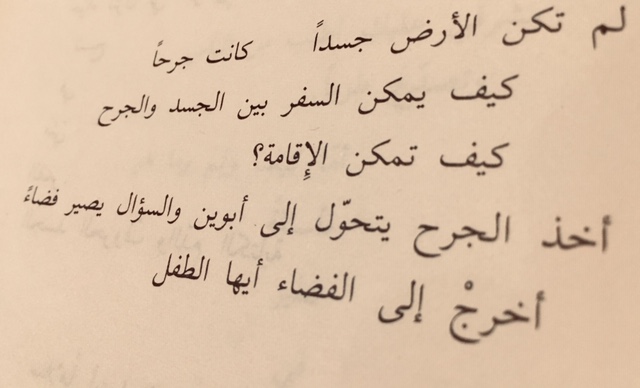The language of poetry: not a body but a wound

This is the opening of Adunis’s monumental prose poem Singluar in Plural Form (Mufrad bi-sighat al-jam‘). First published in 1977, Adunis (b. 1930) continued to edit and revise it, finally publishing a version subtitled “a final formulation” in 1988. The finality of the 1988 formulation is questionable. In fact, the claim of it being a final rendition only emphasizes the impossibility of finality with a text like this. This poem (and every reading of it) is an ongoing exposure, opening up, and challenging of our expectations of poetry in Arabic. After having dislodged Arabic poetry from its rootedness in verse (meter and rhyme) in previous experiments, especially in his 1964 collection The Songs of Mihyar the Damascene, Adunis here drastically expands the limits of the poem. A pioneer of the Free Verse movement launched in the late 1940s, Adunis is also one of the founders of the journal Shiʿr* in 1957. Shiʿr expressed a disposition towards English and French modernist poetry, engaged in a conscious effort to introduce translated poetry into Arabic, and positioned itself as the platform for the uncompromising Arab avant-garde. If the Free Verse poem of the late 1940s, introduced by poets such as the Iraqi Nazik al-Mala’ika and the Badr Shakir al-Sayyab, was modernist, then the prose poem introduced by the Shʿir poets was ultramodernist.
While insisting on the prose poem as a “new form in Arabic,” Adunis continuously implicates the Arabic tradition in his prose poem project. He presents the prose poem as a critical lens through which the Arabic literary tradition may be reimagined or creatively reread and its genre classification recharted or dispensed with all together. A great example of this is his poetic reading of the Arabic prose tradition curated in his 2005 Anthology of Arabic Prose (Diwan al-Nathr al-Arabic). The question is no longer “what is poetry” but rather “what can be poetry?”


Arabic Modernism's Other Tradition